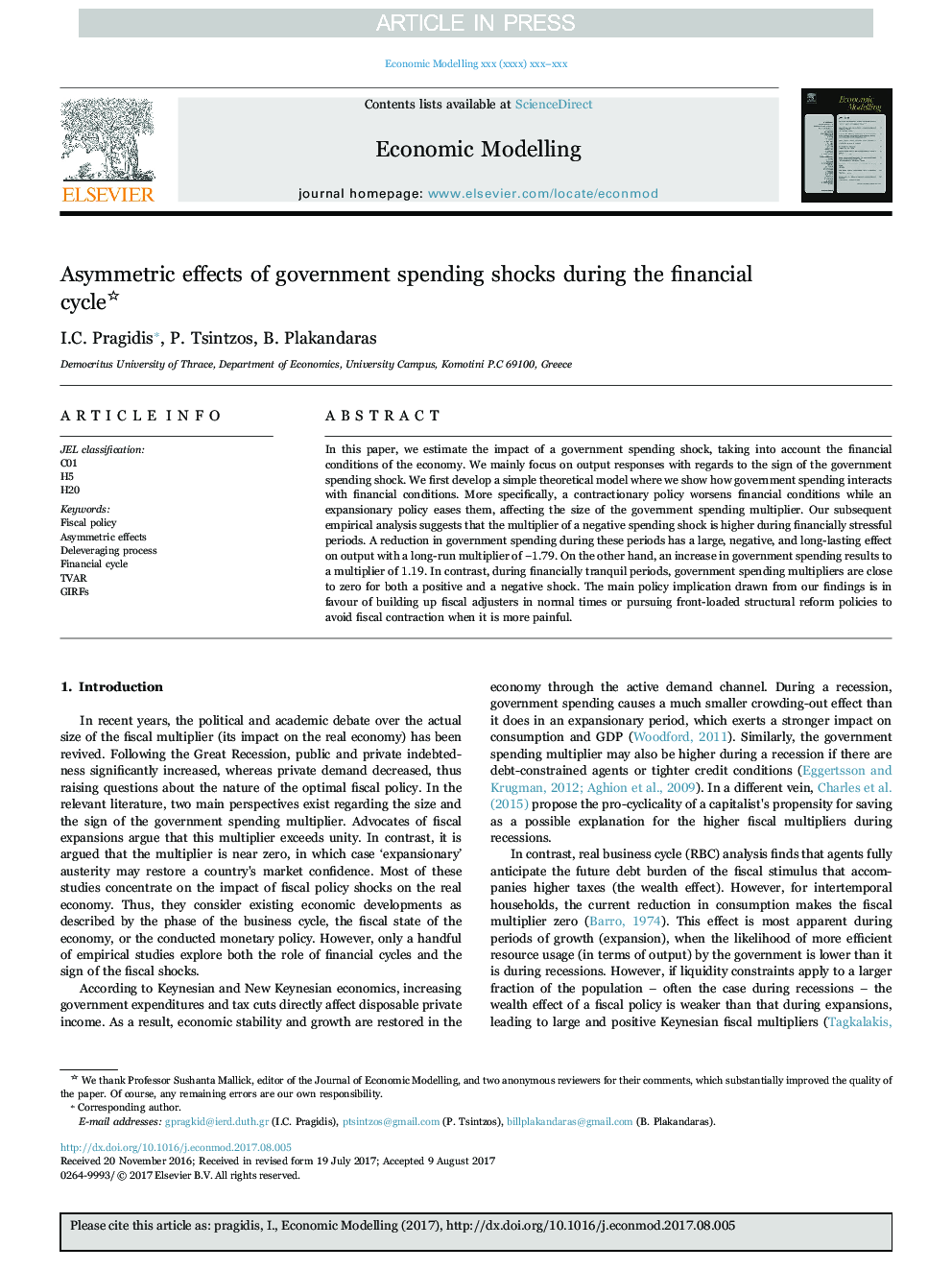| Article ID | Journal | Published Year | Pages | File Type |
|---|---|---|---|---|
| 7347676 | Economic Modelling | 2018 | 16 Pages |
Abstract
In this paper, we estimate the impact of a government spending shock, taking into account the financial conditions of the economy. We mainly focus on output responses with regards to the sign of the government spending shock. We first develop a simple theoretical model where we show how government spending interacts with financial conditions. More specifically, a contractionary policy worsens financial conditions while an expansionary policy eases them, affecting the size of the government spending multiplier. Our subsequent empirical analysis suggests that the multiplier of a negative spending shock is higher during financially stressful periods. A reduction in government spending during these periods has a large, negative, and long-lasting effect on output with a long-run multiplier of â1.79. On the other hand, an increase in government spending results to a multiplier of 1.19. In contrast, during financially tranquil periods, government spending multipliers are close to zero for both a positive and a negative shock. The main policy implication drawn from our findings is in favour of building up fiscal adjusters in normal times or pursuing front-loaded structural reform policies to avoid fiscal contraction when it is more painful.
Related Topics
Social Sciences and Humanities
Economics, Econometrics and Finance
Economics and Econometrics
Authors
I.C. Pragidis, P. Tsintzos, B. Plakandaras,
